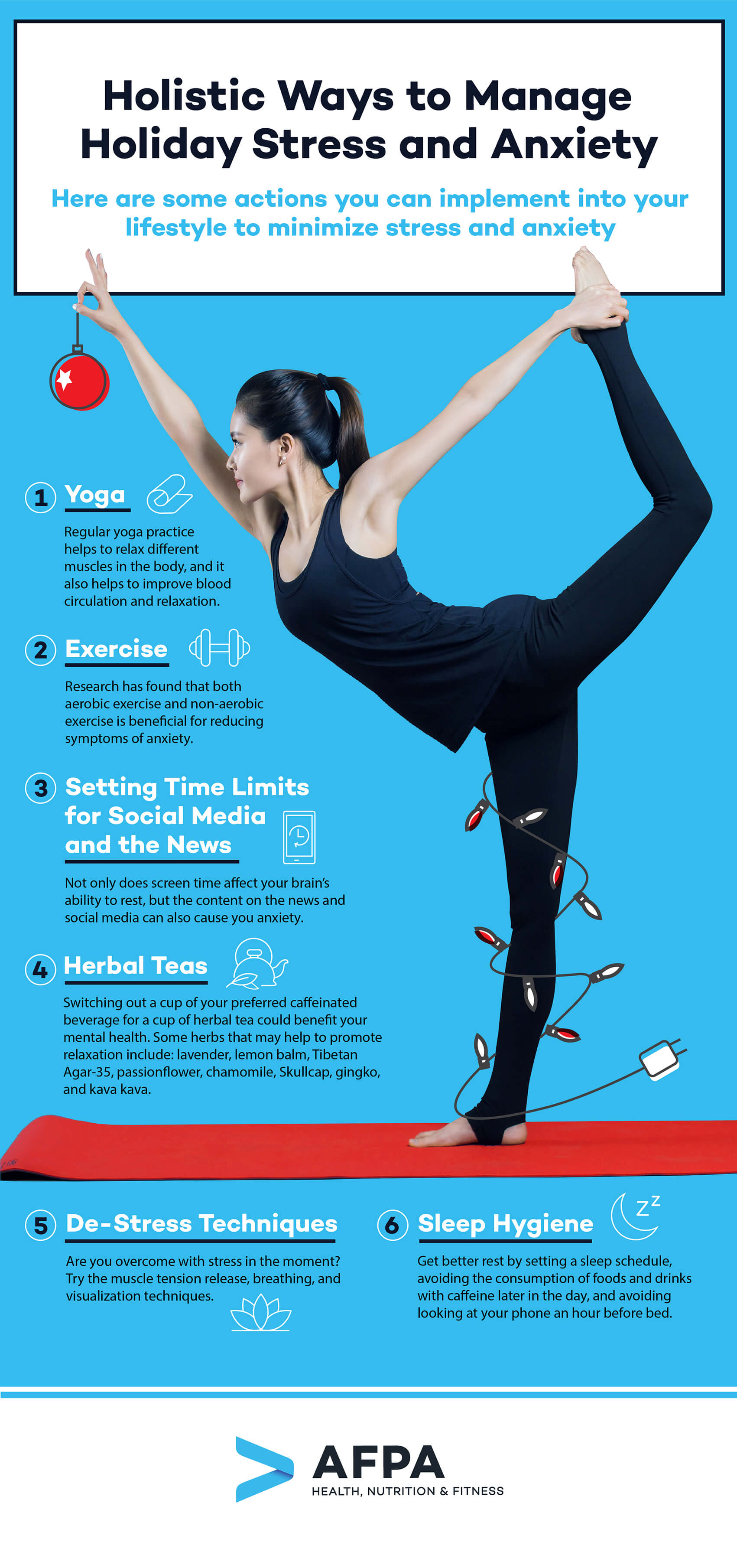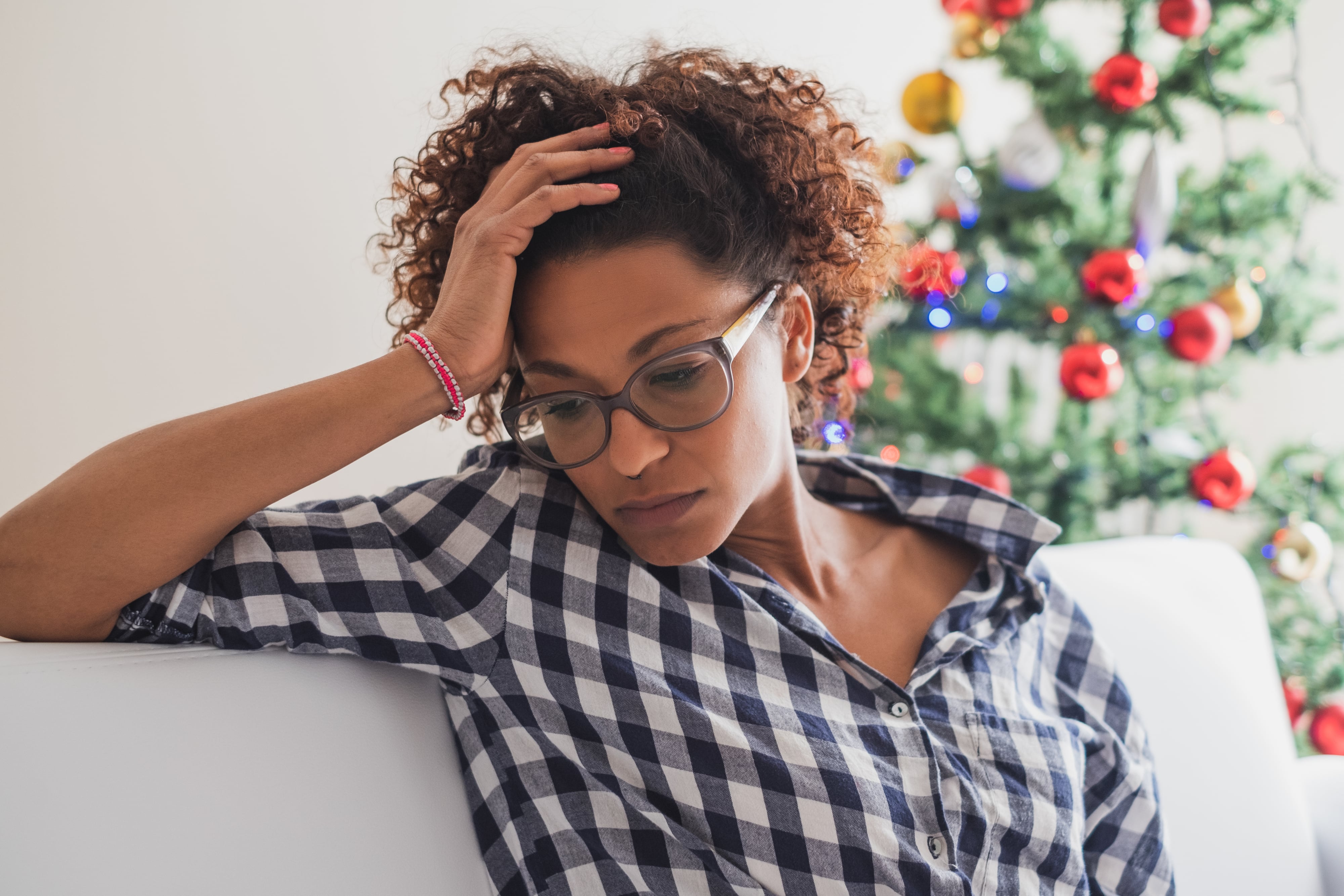Believe it or not, the holidays are just around the corner.
By now, you’ll have seen Christmas decorations start to pop up on your streets, and most department stores are selling holiday-themed clothing.
Some of us can’t believe almost the entire year has been consumed by a pandemic, while others are excited to dive into the holiday cheer.
Regardless of whether you are excited to fully embrace the season or have a hard time believing we are at that time of year already, the last months of the year are usually accompanied by a fair share of stress and anxiety.
Your clients are also experiencing the same range of feelings as you, and you can connect with them and support them by offering practical advice on how to help manage their holiday stress.

What Is Causing People Stress This Holiday Season and What Can You Do About It?
Deadlines
In most work and school environments, it often seems that deadlines are stricter and tighter as the end of the year rolls around. Since there are more “days off” thanks to Thanksgiving, Hanukkah, Christmas, and New Year’s, we have fewer business days than in other times of the year to get things done before people check out for the holiday season.
What Can Help:
- For each deadline, schedule realistic subtasks to get done before the final deadline.
- Overestimate how much time you think you’ll need to get things in.
- Plan to get work turned in before your days off. Use your days off to rest and spend time with loved ones.
Holiday Shopping
Finding the perfect present for loved ones can give you a warm and fuzzy feeling, but several elements around holiday shopping can be stressful. Whether it is the crowds, the amount of cash you’ll be spending, taking the time out from your busy schedule to shop, or the pressure to find the right present for everyone, holiday shopping is stressful.
What Can Help:
- Make a realistic budget for how much you will be able to spend without getting in debt.
- Keep a gift brainstorming and purchase list.
- Start shopping in advance.
- Do as much shopping as you can online to avoid the crowds.
Group Gatherings
Without a doubt, we will still be living out the COVID-19 pandemic this holiday season. This means that the CDC recommendations are just as relevant as they were when the pandemic started. Limiting gatherings with family and friends might be the most challenging aspect of this season. The continued isolation and the pressure from others to get together in maskless, closed environments may make you anxious.
What Can Help:
- Be honest with loved ones about limitations, expectations, and worries well in advance.
- Make plans to meet with loved ones in open, well-ventilated areas, and use masks.
- Plan for online gatherings and holiday parties.
Winter Depression
Some people begin to feel down or experience abrupt mood changes as the days grow colder and shorter. Seasonal affective disorder (SAD) affects about 5% of the US population, but many people don’t even know that they have it. Regardless of diagnosis, if you know that you, your client, or a loved one tends to feel depressed around this season, it is important to be aware of how seasonal changes affect you.
What Can Help:
- If you suspect you might have SAD, talk to your physician. A diagnosis can help them offer effective treatment.
- Treatment options often include talk therapy, light therapy, supplementation, or pharmaceuticals.
Trauma and Grief
Not everyone is excited to see the holiday season roll around. People who have had traumatic experiences during the holidays or family gatherings may experience mild to extreme anxiety or depression, and some may even overlook the season completely.
What Can Help:
- Seek support from a trauma-informed therapist or health coach.
- Join support groups.
Expectations for the New Year
After the year that 2020 has been, 2021 is the light at the end of the tunnel for many. This year may have affected your income or your studies, or it may have made you postpone your health goals. There is a lot riding on the new year, and while it may give some people hope, the weight of the expectations could give other people anxiety.
What Can Help:
- Write New Year’s resolutions that are only dependent on your individual actions.
- Don’t wait until 2021 to start taking action with things you want to achieve.
Holistic Ways to Manage Stress
From a holistic perspective, stress affects the mind, body, and spirit. As such, to help manage stress, we must carry out practices that care for the whole body experience.
Below, we suggest several research-backed ways you can help manage stress. Unlike the suggestions in the above section, these suggestions, which are expanded upon in this article, should be a part of your lifestyle to be most effective. As we transition into the holiday season, do your best to incorporate some of these practices into your daily routine.
Mindfulness Meditation
Mindfulness meditation helps to increase awareness of how you are feeling and offers constructive tools to get in tune with and control your emotions. In addition to reducing current stress, it can help prevent future stress by increasing attention and concentration and reducing mood and fatigue.
Yoga
Yoga is one of the most well-studied exercises for stress release. Regular yoga practice helps to relax different muscles in the body, and it also helps to improve blood circulation and relaxation. Are you unsure where to start? Try out these three mood-brightening yoga poses.
Sleep Hygiene
You can improve your sleep quality by practicing sleep hygiene. This includes setting a sleep schedule, avoiding the consumption of foods and drinks with caffeine later in the day, and avoiding looking at your phone an hour before bed.
2-Minutes to De-Stress
Are you overcome with stress? Try the muscle tension release and breathing techniques we suggest here.
Time Limits for Social Media and the News
Not only does screen time affect your brain’s ability to rest but the content on the news and social media can also cause you anxiety. If you find yourself spending hours on end watching the news or scrolling through your social media, set time limits. Apps that regulate your screen time can also help.
Gut-Health Promoting Foods
The gut is intimately linked to the brain via the gut-brain axis. Regularly eating foods that provide probiotics and prebiotics to the gut is one way to help promote mental health. You can learn more about the gut-brain connection and read more tips here.
Exercise
Exercise is one of the most well-studied lifestyle activities that help to manage stress and anxiety. Research has found that both aerobic exercise and non-aerobic exercise are beneficial for reducing symptoms of anxiety. In fact, regular exercise can help to regulate the body’s stress response.
Herbal Teas
Switching out a cup of your preferred caffeinated beverage for a cup of herbal tea could benefit your mental health. The lack of caffeine in herbal tea can help you relax; there are also some herbs that have a direct effect on your body’s ability to manage stress. Some teas found to help reduce anxiety include:
- Lavender
- Melissa (lemon balm)
- Tibetan Agar-35
- Passionflower
- Chamomile
- Rosmarinus
- Hops
- Skullcap
- Ginkgo
- Kava Kava
Why Is the 2020 Holiday Season Different?
The year 2020 has been a very difficult year for people’s physical health and mental health. For many people, it has also weakened their economic stability and social support network. The COVID-19 pandemic has challenged society in unprecedented ways. The anxiety and stress brought on by the events of the year, in addition to the regular stress that arises during every holiday season, has made 2020 a challenge beyond all others.
When the COVID-19 was first announced in February, many projections made it seem that the worst of it would be over if we followed CDC and WHO recommendations. Now, with some parts of the US seeing record numbers of infections, it is clear that we are not out of the woods. So, even though many had originally looked forward to the holiday season to reunite with their loved ones, the risk that group gatherings could present is still a problem.
How to Support Someone Who Is Experiencing Holiday Stress and Anxiety
If your client or a loved one is experiencing stress or anxiety around the holiday season, here are some ways you can support them:
- Suggest some of the tips from this article to them.
- Listen and show empathy.
- Share your own experiences when appropriate so they know they aren’t alone.
- If you feel that they can no longer handle the anxiety or stress on their own, suggest professional support.
The holiday season is stressful for most people, so offer support to them when you can.
Discover the benefits of online learning and get your yoga certification with AFPA’s expert-led program.
Learn How to Become a Certified Holistic Health Coach Online





